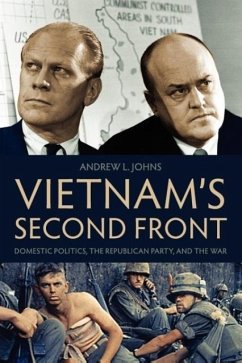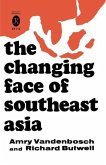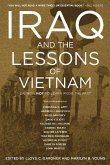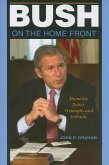Andrew Johns argues that recent scholars of the Vietnam War have grossly underestimated the importance of partisan politics, election-year maneuvering, and domestic political culture in their understanding of the origins and escalation of America's longest war. In Vietnam's Second Front: Domestic Politics, the Republican Party, and the War, Johns evaluates the profound influence of the Republican Party - its congressional leadership, governors, elder statesmen, grass-roots organizations, as well as Richard Nixon's administration - on the prosecution of the war. Beginning his analysis in 1961 and continuing through the Paris Peace Accords, Johns argues that the hawkish rhetoric of Republican leaders fomented Democratic fears of a replay of the "who lost China" debate in the event of the "loss" of Vietnam. Johns argues that domestic political considerations were central to the decisions made or postponed by Kennedy and Johnson regarding Southeast Asia. Johns also analyzes how the splintering of a bipartisan consensus on foreign policy which characterized much of the Cold War, influenced American failure to resolve the Vietnam conflict. While much attention has been paid to Nixon's role in the Vietnamization of the war and peace negotiations, Johns is among the first historians to critically evaluate Nixon's role in prodding the Johnson administration to act more aggressively in Vietnam. To demonstrate his arguments, Johns cites Nixon's hawkish pronouncements on the war prior to 1967, his rhetorical retreat to a more moderate position in an effort to win the White House, and his contradictory escalation and disengagement of the war during his first years in office. Vietnam's Second Front makes an important contribution to our understanding of the relationship between American domestic politics and foreign policy.
Hinweis: Dieser Artikel kann nur an eine deutsche Lieferadresse ausgeliefert werden.
Hinweis: Dieser Artikel kann nur an eine deutsche Lieferadresse ausgeliefert werden.








